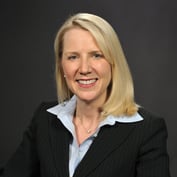By
Washington
Mutual funds are facing increasing demands for a significant upgrade in the quality of information presented to investors and in their ethical behavior.
And the demands are intensifying following New York Attorney General Elliott Spitzers investigation of alleged manipulations of mutual fund trading.
William H. Donaldson, chairman of the Securities and Exchange Commission, sent a letter to Matthew W. Fink, president of the Investment Company Institute, Washington, promising “a vigorous and broad-based investigation into these types of abuses.”
And Donaldson asks Fink to urge ICI members promptly to seek assurances from broker-dealers and other intermediaries that they are following all relevant rules and regulations.
“I also urge you to remind your members of their obligations with respect to market timing activity and request that they review their market timing policies and procedures, as well as their fair valuation procedures, for sufficiency in addressing concerns in this area,” Donaldson says.
Fink relayed the message to his members, noting, “I am sure you appreciate the vital importance of these issues in maintaining the confidence of mutual fund investors.”
Donaldson, for his part, issued a separate statement to the public following news of the New York investigation, saying it “further illustrates the importance of the SECs ongoing review of both hedge funds and mutual funds, and the SECs upcoming recommendations regarding improvements and increased disclosure requirements for both.”
But if the SEC is putting pressure on the mutual fund industry, Congress is putting pressure on the SEC.
The House Financial Services Committee has taken a leading role in the drive to upgrade mutual fund disclosure, approving H.R. 2420, the Mutual Fund Integrity and Fee Transparency Act.
But in a separate letter to Donaldson, two leading members of the committee say the SEC should not wait for Congress to finish its work on H.R. 2420.
Rep. Mike Oxley, R-Ohio, who chairs the full committee, and Rep. Richard Baker, who chairs the Subcommittee on Capital Markets, sent a joint letter to Donaldson urging him to use the SECs existing regulatory authority to implement reforms that do not require legislative action.
These include improving mutual fund fee and expense disclosures, improving governance by boards of directors and requiring funds to have a chief compliance officer.
But some believe the reforms contained in H.R. 2420 do not go far enough. John C. Bogle, founder of the Vanguard Group of funds and president of the Bogle Financial Markets Research Center, says it is impossible to believe mutual funds are managed in the interests of shareholders rather than the interests of directors, officers, investment advisors, underwriters or brokers.








 September 25, 2003 at 08:00 PM
September 25, 2003 at 08:00 PM










